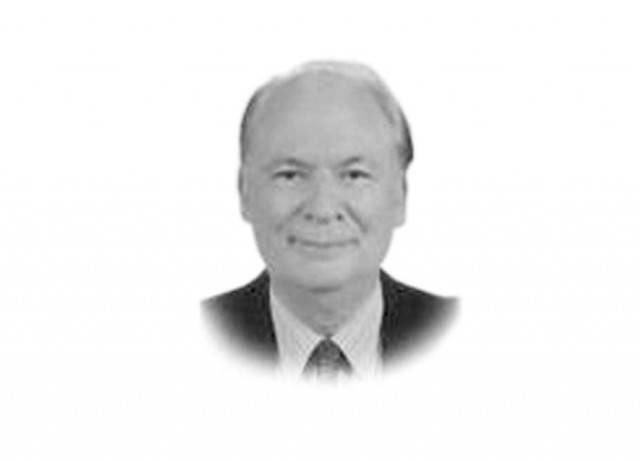Dr Raghavan speaks on India-Pakistan relations
Aware of questions that were likely to follow, Dr Raghavan pre-empted them by focusing on controversial issues

anwer.mooraj@tribune.com.pk
Aware of the clutch of questions that were likely to follow, Dr Raghavan pre-empted some of the queries which were likely to follow by focusing on controversial issues which invariably centered on the same charges that have existed for a long, long time. Issues like pinching Pakistan’s share of water from the northern rivers, the alleged activities of RAW and other spy agencies, the dispute over Jammu and Kashmir, ceasefire violations along the Line of Control, India’s reluctance to re-establish cricket ties between the two countries and its unwillingness to revive a Pakistani consulate in Mumbai.

To add a sociological touch to his talk, Dr Raghavan structured his talk into three broad categories, by hitting on a number of bullet points; and, I think, in the process he lost some members of the audience. A part of his treatise focused on how relations between neighbours had always been difficult, quoting the case of Russia, Poland, Japan, South Korea and China. Question time perked up when a member of the audience wanted to know in a quivering voice which resonated through the room, what the Indian government intended doing about the killing of Muslims by Hindus in India. Dr Raghavan mulled over the question and said in a calm, controlled voice that India has a number of minorities and efforts are being made to come to grips with this issue. The chap who was sitting on my left, however, whispered in my ear, “The high commissioner is a true diplomat. He didn’t want to ruffle any feathers. He could have quite easily said more Muslims have been killed in Pakistan by people of their own faith than have been killed by Hindus and Sikhs in India. But he chose not to. His job is to make friends.”
One of the trickiest, and most politically and socially fraught jobs of all diplomats, irrespective of whether they have huge egos, vast resentments or florid vanities, is how to handle the wrath of a people in the land where they are posted, when their own government begins to support an adversary. Like the time during the Cyprus crisis when Mr Bhutto, who ruled the roost in Pakistan, decided to wholeheartedly support Turkey against Greece in the dispute over the sovereignty of Cyprus. The Pakistan ambassador in Ankara was sitting on cloud nine and could have strutted about like a peacock in full bloom, while his counterpart in Athens must have wanted to stick his head in the sand like an ostrich. It’s a tough business representing your country.
Published in The Express Tribune, May 31st, 2015.
Like Opinion & Editorial on Facebook, follow @ETOpEd on Twitter to receive all updates on all our daily pieces.














COMMENTS
Comments are moderated and generally will be posted if they are on-topic and not abusive.
For more information, please see our Comments FAQ